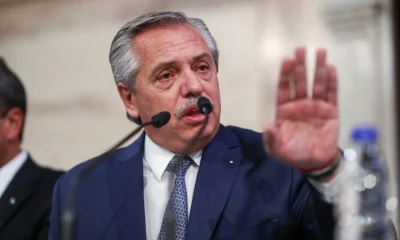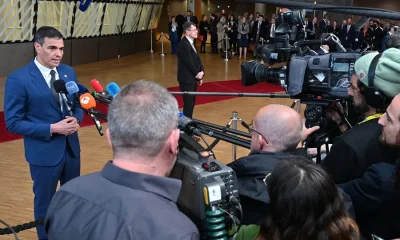International
Spain assures that no one will intimidate her in her support of the Palestinians
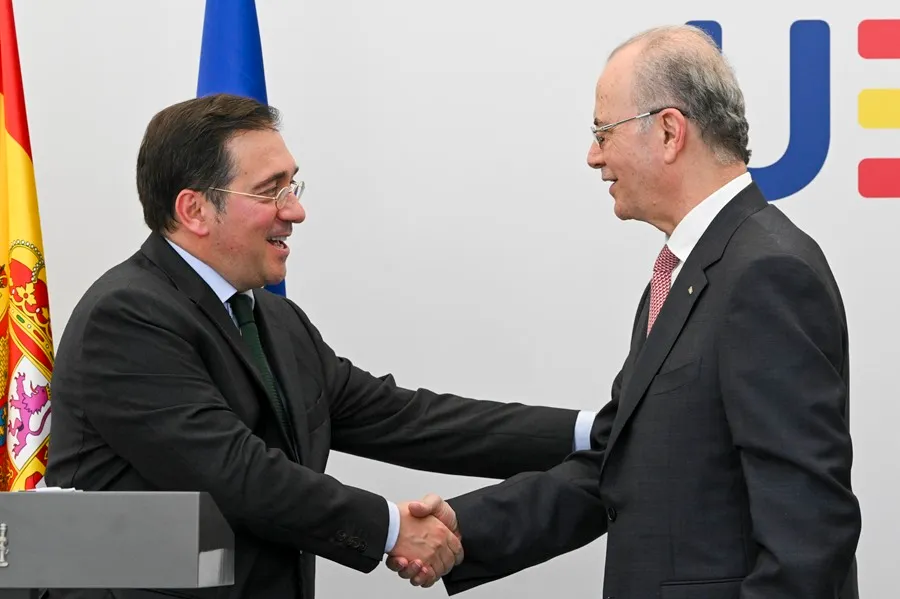
Spain made it clear this Sunday that no one is going to “medren” it in its support of a ceasefire in Gaza and the entry of humanitarian aid into the Strip, after Israel broadcast a video in which it reproaches the country for its imminent recognition of the Palestinian State.
“Spain has been very firm condemning the attacks of Hamas and demanding the release of all the hostages, but Spain has also been very firm and will continue to be demanding a ceasefire and the knowledge of help from the land points,” stressed the Spanish Minister of Foreign Affairs, José Manuel Albares.
At a press conference in Brussels after meeting for the first time in person with the Palestinian Prime Minister, Mohamed Mustafa, he stressed that “no one is going to beurther us in it.”
Albares guaranteed Spain’s support for the Palestinian National Authority and said that next Wednesday he expects to receive Mustafa in Spain, a day after the country has materialized the recognition of the Palestinian State.
The head of Spanish diplomacy stressed that the Palestinian people “have the right to have a State, just as the people of Israel have that right.”
“Both have to coexist in peace, security and good neighborliness. The recognition of the State of Palestine is of justice for the Palestinians, it is the best guarantee of security for Israel and is indispensable to achieve peace in the region,” he said.
Asked about the video shared on social networks by the Israeli Foreign Minister, Israel Katz, in which he reproaches that Spain is going to recognize the Palestinian State, Albares replied that it is “scandalous and execrable.”
“It is scandalous because it is known from all the world, especially from my Israeli colleague, that the Government of Spain has condemned the terrorism of Hamas from the first moment and in all its actions,” he said.
The video, which lasts 18 seconds, starts with the flag of Spain and some of the images of the attacks of the Palestinian Islamist group Hamas on October 7 appear, alternating with those of two people who imitate flamenco dancers, while the phrase “Hamás: ‘Gracias España’” appears overprinted.
For Albares, the video is also “execrable” for the use he makes of flamenco, “a universal art, an open music, a music that dialogues and, therefore, a universal language that brings us closer to all the peoples of the world and that inspires us,” he said.
The minister also referred to other statements criticized by Israel, those made on Saturday by the Spanish head of Defense, Margarita Robles, in which he considered that what is happening in Gaza “is a real genocide,” and said that it was “an opinion” on an issue that is being elucidated by the International Court of Justice.
In that context, Albares alluded to the precautionary measures of that UN court for Israel to put an immediate end to its military offensive in Rafah and recalled that its decisions are “mandatory for all parties, they must be complied with and thus avoid the loss of more human lives and so much unnecessary suffering.”
Mustafa, for his part, praised “the courageous decision taken by Spain” to recognize Palestine as a State and urged the rest of the European countries that have not yet taken this step to do the same as a gesture to “end the serious injustice to which the Palestinian people have been subjected for decades.”
He was also “fully convinced” that “a large number of European countries” will recognize the State of Palestine “in the near future.”
Before Mustafa, Albares emphasized the “important role” played by the Palestinian National Authority in the West Bank and guaranteed him the political and financial support of Spain.
The head of Spanish diplomacy said that, when peace returns to Gaza, both that territory and the West Bank “must be placed under a single Palestinian National Authority.”
He also defended that there is a “massive financial plan” to rebuild Gaza, that the Strip is connected by a corridor with the West Bank and that the capital of the Palestinian State is East Jerusalem.
Albares participates today and tomorrow with the Member States of the European Union and Arab countries in different meetings “to outline the next steps in our efforts for peace.”
International
Spain’s irregular migrant population rises to 840,000, study finds
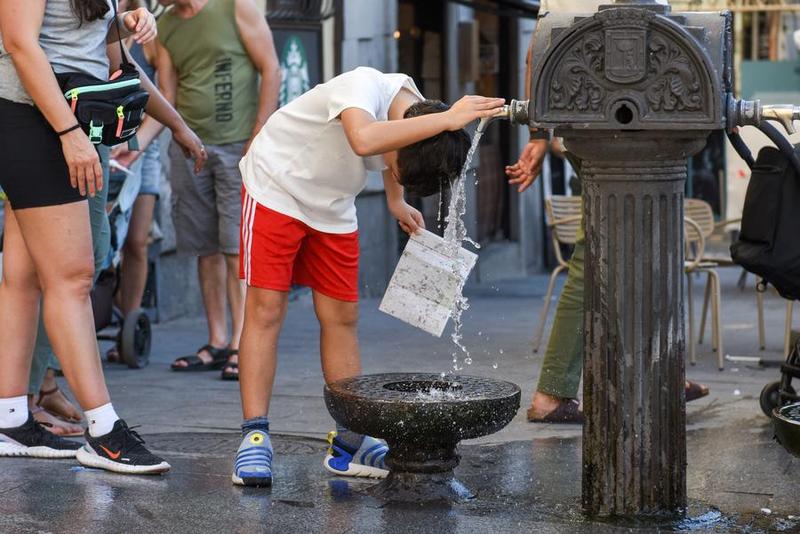
The number of migrants living in Spain without legal residency status continues to rise and has reached 840,000 people, with 91% originating from the Americas, particularly Colombia, Peru and Honduras, according to a report by the Spanish think tank Funcas (Foundation of the Savings Banks).
An estimated 17.2% of the non-EU foreign population living in Spain is in an irregular administrative situation. The estimate is based on the gap between the number of foreign residents effectively living in Spain, according to the National Statistics Institute (INE), and those who hold a residence permit, benefit from international protection, or are in the process of obtaining it.
The data, as of January 1, 2025, point to a notable and sustained increase in irregular migration since 2017, when the estimated figure stood at around 107,000 people, representing 4.2% of the non-EU population residing in Spain.
By origin, migrants from the American continent stand out, totaling around 760,000 people, or 91% of all irregular migrants. Colombians account for nearly 290,000, followed by Peruvians with almost 110,000, and Hondurans with about 90,000. Migrants from Africa (50,000), Asia (15,000) and Europe (14,000) trail far behind.
The figures predate Spain’s latest immigration regulation reform, which came into force in May 2025 and introduces measures to ease access to legal status through residency ties. According to Funcas, the reform would, in principle, tend to reduce the number of migrants in an irregular situation.
International
Historic snowstorm paralyzes Toronto after 60 centimeters of snow

Toronto, Canada’s largest city and the fourth most populous in North America, was largely paralyzed on Monday after a historic snowstorm dumped up to 60 centimeters of snow and sent temperatures plunging to -15 degrees Celsius, authorities said.
Late Sunday, as the scale of the snowfall became clear, city officials declared a climate emergency, triggering extraordinary measures including parking bans on several major streets to facilitate snow removal operations.
Toronto’s public transit authority reported that while some buses remain immobilized, subway and streetcar services are operating with relative normality, though localized disruptions may occur.
A similar situation is affecting the city’s commuter rail network, which remains operational but is experiencing significant delays on its main routes due to the severe weather conditions.
International
Venezuela frees at least 80 political prisoners, NGO says
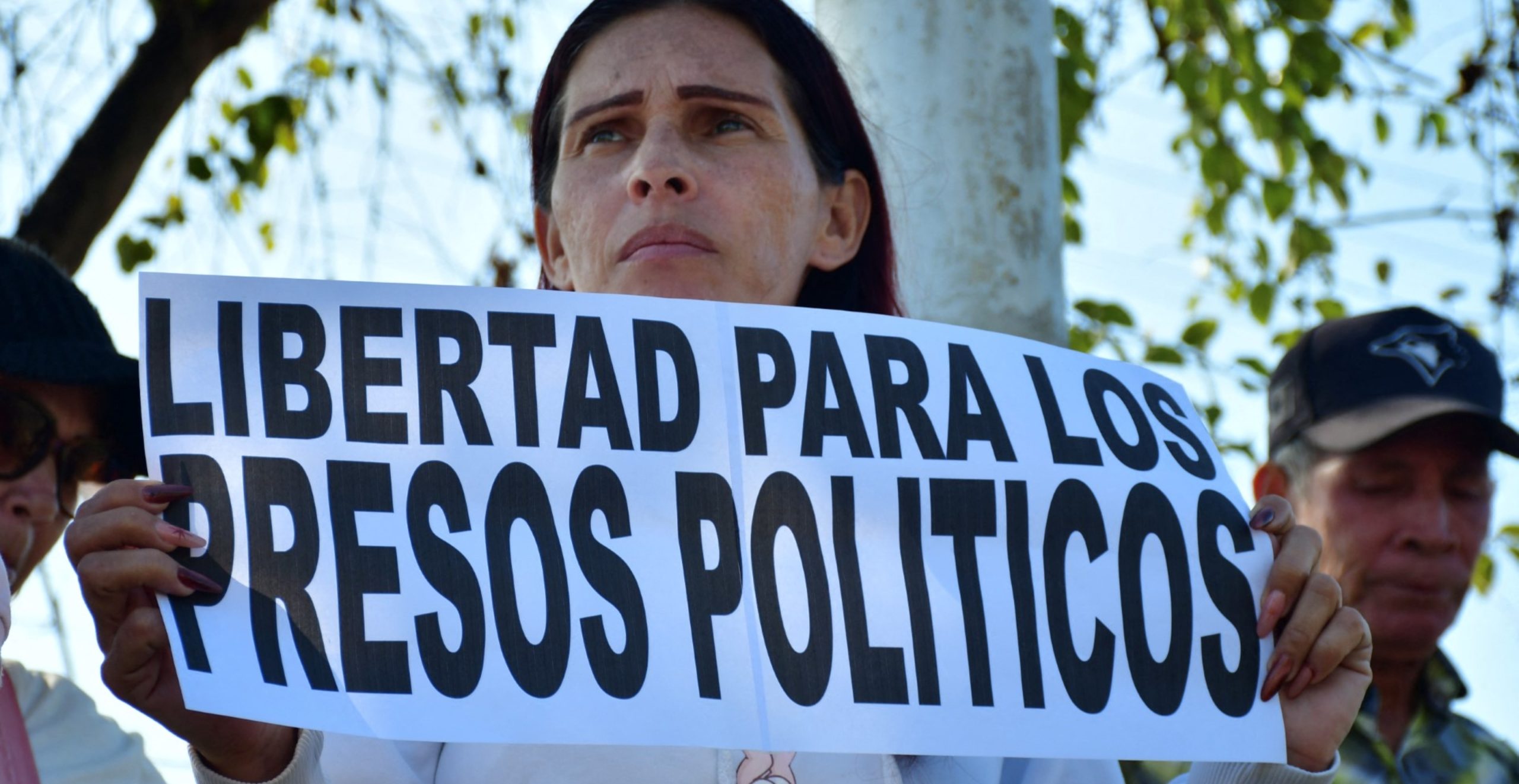
At least 80 political prisoners were released on Sunday across Venezuela, human rights group Foro Penal reported, as the broader process of detainee releases continues at a slow pace under the interim government.
Foro Penal’s director, Alfredo Romero, wrote on social media platform X that verified releases took place nationwide and that the figure could rise as more confirmations are completed.
Attorney Gonzalo Himiob, also from Foro Penal, said the excarcelations occurred during the early hours of the day and emphasized that the number is not yet final pending further verification.
The releases are part of a series of steps announced by Venezuela’s interim leader, Delcy Rodríguez, who took power after the capture of former President Nicolás Maduro in a U.S. military operation on Jan. 3, 2026. Rodríguez has pledged a significant number of liberations but has been criticized by opposition groups and rights organizations for the slow and nontransparent nature of the process.
So far, the Venezuelan government reports that 626 detainees have been freed since December, though independent counts by human rights groups suggest the number of actual political prisoner releases is lower and that many remain behind bars.
Families of those still detained have maintained vigils outside prisons, hopeful for further releases even as broader concerns about political imprisonment and due process persist.
-

 Central America5 days ago
Central America5 days agoMazatenango Carnival cancelled amid State of Siege in Guatemala
-

 International5 days ago
International5 days agoTrump to invite Venezuela’s interim president Delcy Rodríguez to Washington
-

 International5 days ago
International5 days agoMarkets rise as Trump halts Europe tariffs and floats Greenland agreement framework
-

 International5 days ago
International5 days agoVenezuela’s interim president predicts 37% increase in revenues for 2026
-

 International3 days ago
International3 days agoTrump-Era Defense Plan Prioritizes Border Security and Scales Back Global Commitments
-

 Central America3 days ago
Central America3 days agoGuatemala’s president rules out negotiations with inmates after prison riots
-

 International5 days ago
International5 days agoJapan reopens Kashiwazaki-Kariwa Plant despite public concerns
-

 Internacionales3 days ago
Internacionales3 days agoMajor winter storm threatens “catastrophic” ice and snow across much of the U.S.
-

 International5 days ago
International5 days agoFour minors killed in deadly clash between FARC dissidents in Colombia’s Amazon
-

 International3 days ago
International3 days agoBogotá and Quito Seek Dialogue After Tariffs and Power Cut Escalate Tensions
-

 International3 days ago
International3 days agoGuatemala considers sending high-risk gang members to military prisons
-

 International2 days ago
International2 days agoDelcy Rodríguez seeks political agreements after Maduro’s ouster
-

 International3 days ago
International3 days agoRights group says over 5,000 killed in Iran protests, mostly civilians
-

 International2 days ago
International2 days agoFederal immigration agents kill man in Minneapolis, sparking protests and outrage
-

 International11 hours ago
International11 hours agoHistoric snowstorm paralyzes Toronto after 60 centimeters of snow
-

 International11 hours ago
International11 hours agoSpain’s irregular migrant population rises to 840,000, study finds
-

 Central America11 hours ago
Central America11 hours agoGuatemala seizes over a ton of cocaine hidden in flour at Pacific port
-

 International11 hours ago
International11 hours agoRights group says nearly 6,000 killed in Iran protest crackdown
-

 International11 hours ago
International11 hours agoVenezuela frees at least 80 political prisoners, NGO says
-

 International11 hours ago
International11 hours agoEU launches new probe into X over AI-generated fake nude images
-

 International11 hours ago
International11 hours agoFrance debates ban on social media for children under 15
-

 International11 hours ago
International11 hours agoSevere winter storm grips U.S., leaves multiple dead as extreme cold persists



























